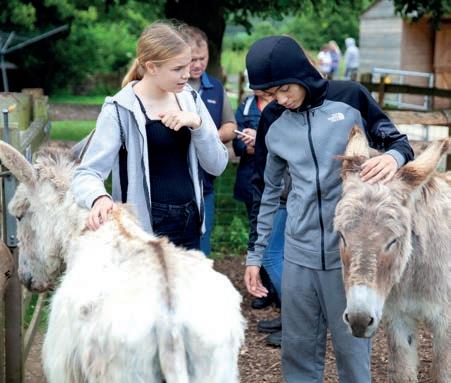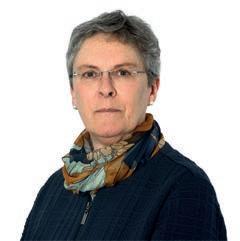
3 minute read
Representing the CLA
CLA Deputy President Victoria Vyvyan
The neologism ‘staycation’ suggests that there is a vacation (a ‘proper’ holiday) and then there is a staycation, where you stay in the UK making the best of things – possibly in the rain. I think that is a serious undersell, but it is worth noting.
In 2021, CLA members that were engaged in tourism businesses couldn’t start trading until April due to Covid-19 restrictions, but happily, from that point, it has been a busy year. We haven’t had to fi ght to fi ll the periods between seasons, and we are looking forward to 2022, which may well play out as a continuing holiday boom. However, this is not a time for complacency. Stories about in ated prices, tra c jams, terrible weather and gridlocked beaches fi lled newspaper column inches. Our regional teams and external aff airs department worked hard to rebut these stories when they were wrong, or grossly exaggerated, and to promote a positive image for the industry.
But what can we do to compete more eff ectively with holidays abroad and help us hold onto our new customers? The CLA is campaigning for a permanent reduction in VAT, which would deliver a level playing fi eld with our European competitors and those at home that are below the VAT threshold. However, while the spectre of in ation stalks us, we also need to look to our businesses to ensure they are costeff ective in all areas. I think now is the time to look carefully at the potential for technological solutions and investment in areas that will provide long-term savings. So, remembering Pharoah’s dream, let’s make plans to carry us through the lean years while we have full order books.
ote a positive image ry. an we do to e eff ectively abroad and onto our new he CLA ng for a eduction would time to look carefully for technological investment in a provide long-t So, remem Pharoah’s dr make plans through t while w ord
Representing the CLA
CLA Vice President Gavin Lane
In August 1989, the Pearce Report was published by the London Environmental Economics Centre. As well as espousing the principles of ‘the polluter pays’ and the introduction of a carbon tax, it raised the idea of sustainable development in relation to the environment. More than 30 years later, and following the COP26 conference on climate change, how far have our rural businesses and population moved towards a more sustainable future?
Over those 30 years, my own family business, like many, has been preoccupied with economic sustainability. The ability to maintain profi t in our core farming enterprise has proved hard. While I continue to strive to make our farming business able to cope with price, yield and weather volatility, I also understand the need to place more emphasis on its environmental and social sustainability. We have embraced regenerative farming techniques, focused on energy and resource e ciency, and looked at all options in cutting down waste. As our business has diversifi ed into holiday and residential lets, we have looked at options for decarbonising our heating systems through renewables and better use of insulation. Like many CLA members, we still have a long way to go. It has been a steep learning curve with a few expensive mistakes. However, changing my mindset to look at how sustainable and resilient my business is in economic, environmental and social terms has been the single most important change to my work. Personally, I see no other option for my and other rural businesses.










